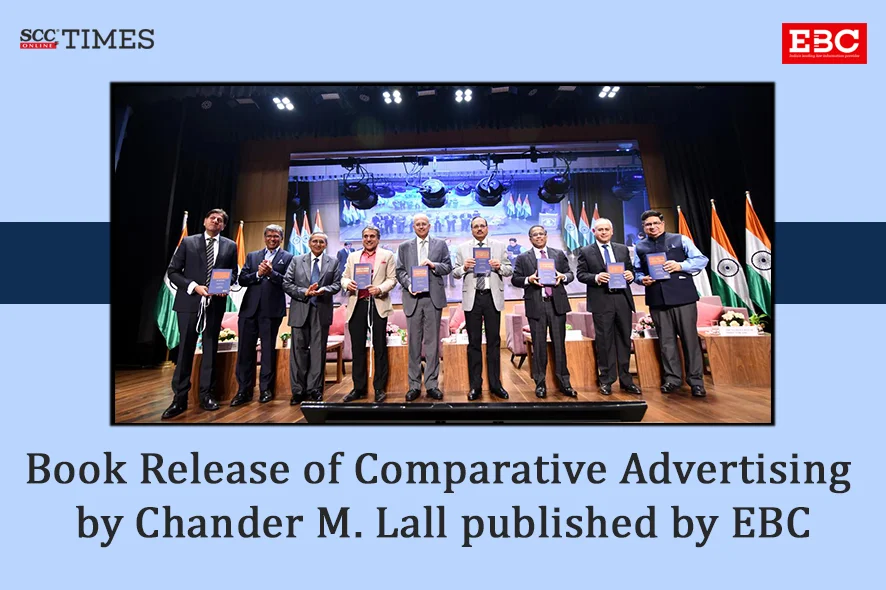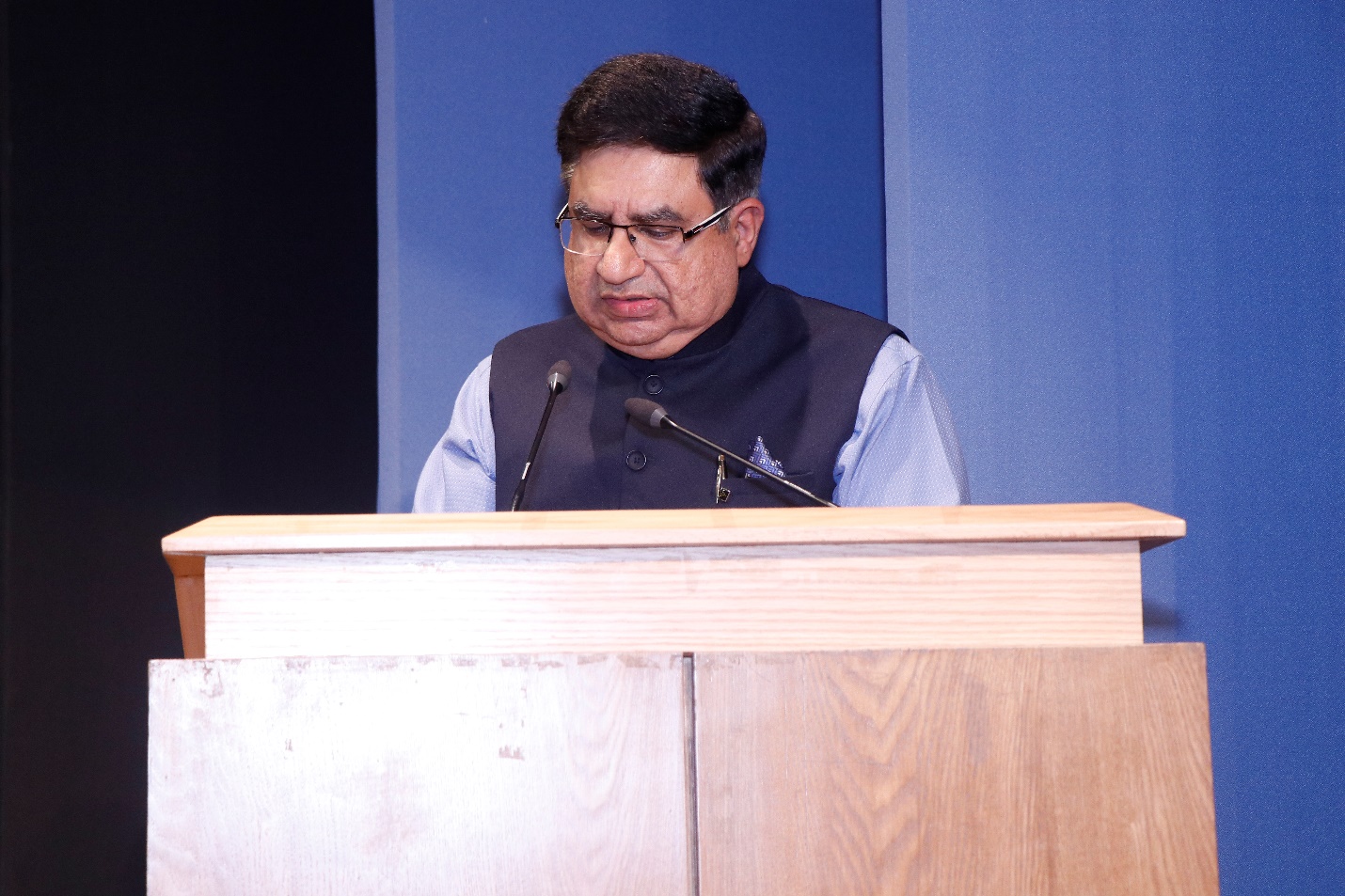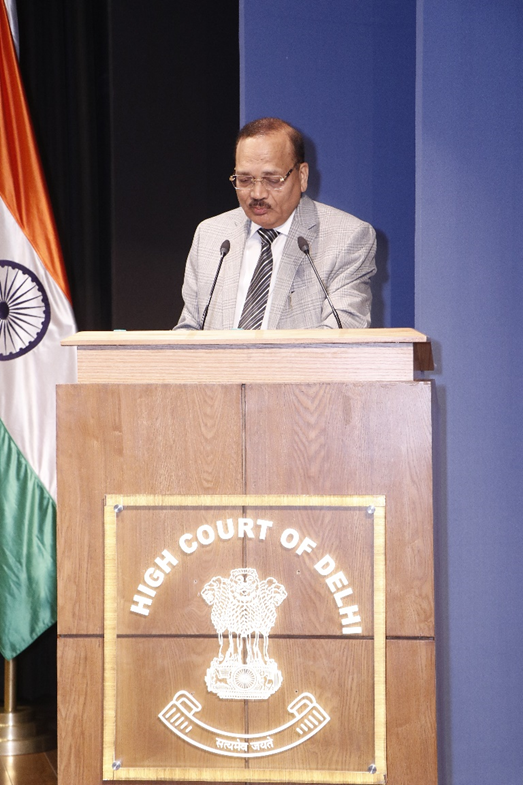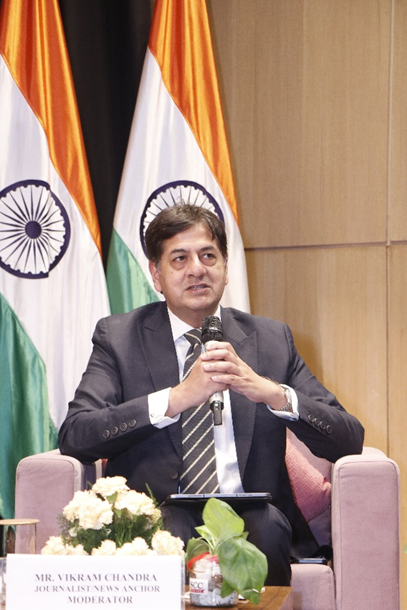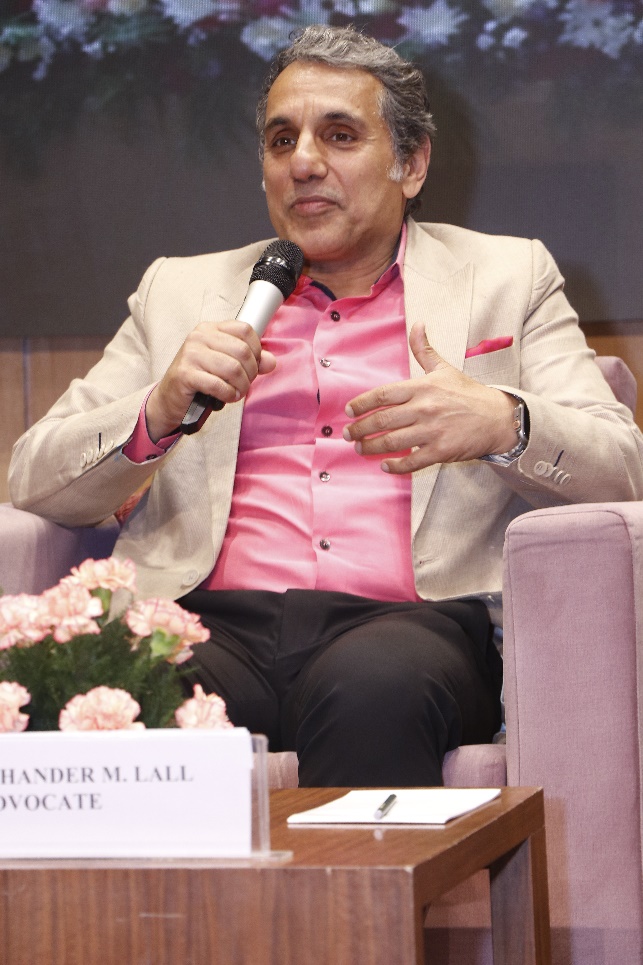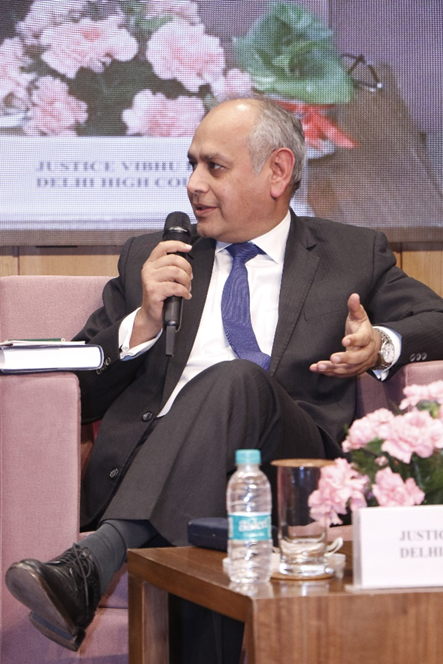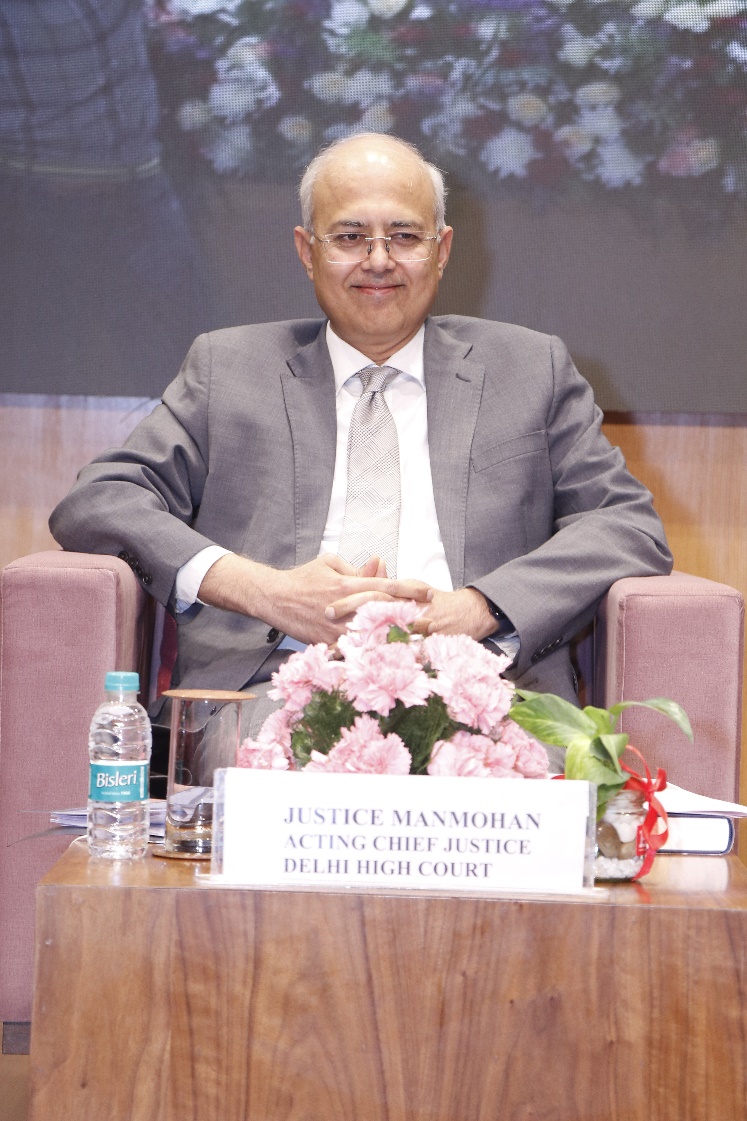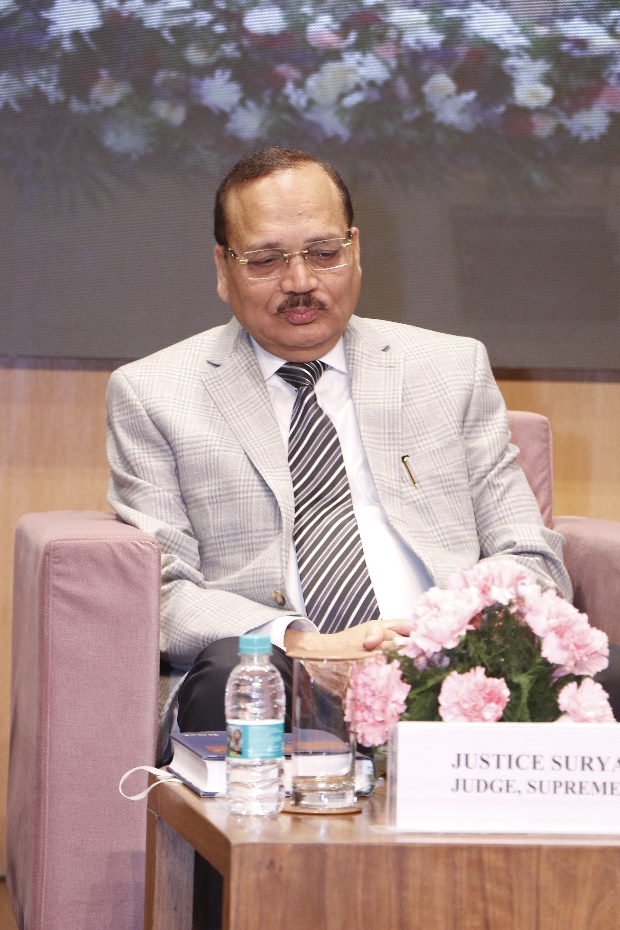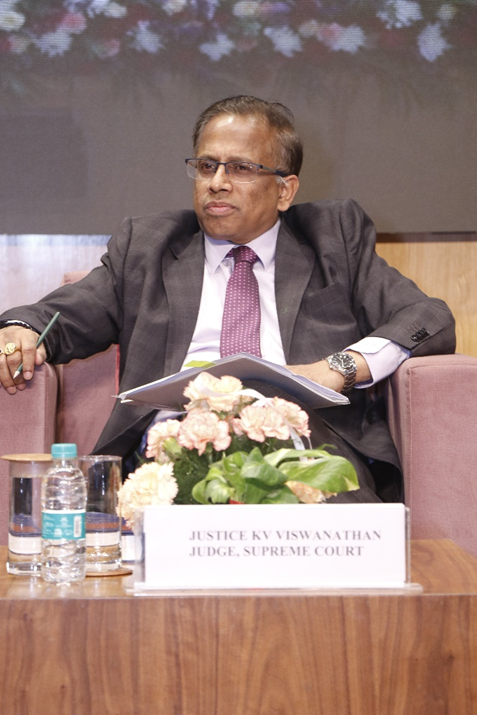Eastern Book Company released “Comparative Advertising: Law & Practice”, a book by Senior Advocate Chander M. Lall on 10-05-2024 at Delhi High Court. You can order your copies of the book here. The event marked the presence of luminaries such as Justice Manmohan, Acting Chief Justice of Delhi High Court, Justice Surya Kant, Judge of Supreme Court of India, Justice K.V. Viswanathan, Judge of Supreme Court of India, Justice Vibhu Bakhru, Judge of Delhi High Court and Vikram Chandra, Journalist/News anchor. Justice Sanjay Kishan Kaul, Former Judge , Supreme Court of India, Justice Prathiba M. Singh, Judge , Delhi High Court and Justice Rajiv Shakdher, Judge , Delhi High Court were also present at the prestigious event.
The event began with a welcome speech by Sumeet Malik, Director, EBC . He said that the focus wasn’t solely on the comprehensiveness of the material on comparative advertising, but rather on the meticulous examination of its implications. He further stated that “Senior Advocate Chander M. Lall’s extensive experience and profound insights in this critical legal domain, which profoundly impacts a broad segment of society, enriched the discourse.” He added that “there were numerous exchanges between them, before the manuscript evolved into the book now presented.” He further mentioned that to him, a book serves as a repository of thoughts and ideas.
Concerning the topic, he said that “comparative advertising delves into compelling aspects of conflicting interests, safeguarding brand integrity or corporate image versus upholding the right to freedom of expression.”
Justice Surya Kant, Judge, Supreme Court of India expressed delight on the release of the book. He stated that this subject holds tremendous importance in a country like ours which has vast wealth and consumer market. He further mentioned that “while there hasn’t been significant deficiency of jurisprudential growth in Indian Courts regarding this matter, Senior Advocate Chander Lall’s book promises invaluable guidance, especially considering its relevance in the context of our economy.”
Justice Surya Kant mentioned that the central point remains consumer protection. The concept of comparative advertising must prioritize the consumer, ensuring honesty and integrity in advertisements. He condemned misinformation and deception and emphasized honest advertising.
He further stated that he is confident that “Senior Advocate’s Lall’s book will cater to the needs of legal professionals by serving as a torchbearer for judges and lawyers to delve into new jurisprudence. Our courts and judicial system must not lag in developing this jurisprudence, and today’s discussion will hopefully contribute to that objective.”
Book Release
The book was released followed by a panel discussion on: “Should advertising be tested in the anvil of Article 19(1) (a) read with 19(2) or on the anvil of Article 19(1)(g)?”
Journalist Vikram Chandra moderated the panel discussion. The panel comprised of Justice Manmohan, Acting Chief Justice of Delhi High Court, Justice Surya Kant, Judge of Supreme Court of India, Justice K.V. Viswanathan, Judge of Supreme Court of India, Justice Vibhu Bakhru, Judge of Delhi High Court
Mr. Vikram Chandra, Journalist/ News Anchor began the discussion by asking Senior AdvocateChander M. Lall some insights into comparative advertising.
Senior Advocate Chander Lal began by illustrating the complexities of comparative advertising by using examples to shed light on the intricacies involved. He highlighted the legal complexities surrounding comparative surrounding the comparative advertising and the tension between freedom of speech and need for regulation.
On question regarding what the law says about the legal framework regarding comparative advertising, Senior Advocate Chander M. Lall answered that “there’s a delicate balance to maintain when it comes to comparative advertising. You’re allowed to mention it, but it must be done in a manner that focuses more on boosting your own image rather than disparaging the competitor.”
On questions regarding comparative advertising, particularly in terms of permissible boundaries and drawing the line between acceptable puffery and denigration of competitors’ products.
Justice Vibhu Bakhru responded that “the boundaries of comparative advertising is highly context-dependent, with the overarching guideline being to promote one’s product positively without disparaging competitors.”
Further Chief Justice Manmohan framed his perspective within the framework of Article 19(1)(a), viewing artistic expression as a facet of free speech. He stressed that “while puffery is permitted, it must be based on verifiable strengths.” He underscored the wide scope of comparative advertising, emphasizing the need for transparency and truthfulness while allowing for the promotion of one’s own product’s strengths.
On the questions regarding the challenges between right to free speech and its restriction, Justice Surya Kant emphasized that “while commercial advertisers have the right to free speech, this right comes with corresponding duties and conditions, notably the protection of consumer rights.” He underscored the importance of consumer education, information, and entertainment as crucial aspects of the right to free speech under Article 19(1)(a).
Justice Surya Kant asserted that any expression falling under Article 19(1)(a) must also adhere to the conditions outlined in Article 19(2), and even extend to considerations of Article 21. He highlighted the role of civil laws, tort laws, and statutory provisions, such as Sections 28 and 30 of the Trademark Act, in regulating comparative advertising.
On question regarding the difference between right to speech of an individual and of a corporation, Justice Vibhu Bakhru discussed the intersection of individual and corporate rights to free speech, drawing on the doctrine of harmonious construction. He saidthat “corporate citizenship is recognized, as shareholders ultimately represent corporate interests.” He emphasized that rights under Article 21 are fact-specific and may vary in primacy depending on the circumstances, citing examples like the famous passports case involving Mahatma Gandhi’s passport cancellation. He concluded that rights under Part III of the Constitution are interconnected and must be analyzed contextually.
Justice Suryakant emphasized the critical importance of protecting the right to free speech, both for individuals and corporations. He acknowledged that in an innovative world, there may be attempts to curtail this right, either directly or indirectly. However, he stressed that the constitutional guarantee of free speech is integral to living a dignified life and must be protected, particularly for journalists and the media.
While recognizing that reasonable restrictions may be imposed in certain cases, Justice Suryakant cautioned against attempts to misuse such restrictions to stifle free speech.
On question regarding that fundamental rights are right is only enforceable against the State and how State how they can be enforced forced against corporations, Justice Suryakant highlighted the importance of protecting free speech rights, even against private entities, when they perform functions akin to state actions or cause harm equivalent to that anticipated from the state. He emphasized the courts’ role in developing innovative jurisprudential tools to safeguard these rights.
Justice KV Vshwanathan underscored the horizontal application of fundamental rights, which extends their protection across various domains, including interactions between private parties.
Justice Manmohan emphasized the inalienable nature of natural rights, asserting that they can be asserted against private individuals and that remedies are available for violations, even outside traditional public law mechanisms.
Overall, the discussion shed light on the complex interplay between free speech, fundamental rights, and commercial interests, offering valuable insights into the evolving legal landscape.
The event concluded as Prachi Bharadwaj, Senior Associate Editor, EBC thanked the esteemed guests and the audience for the evening.


